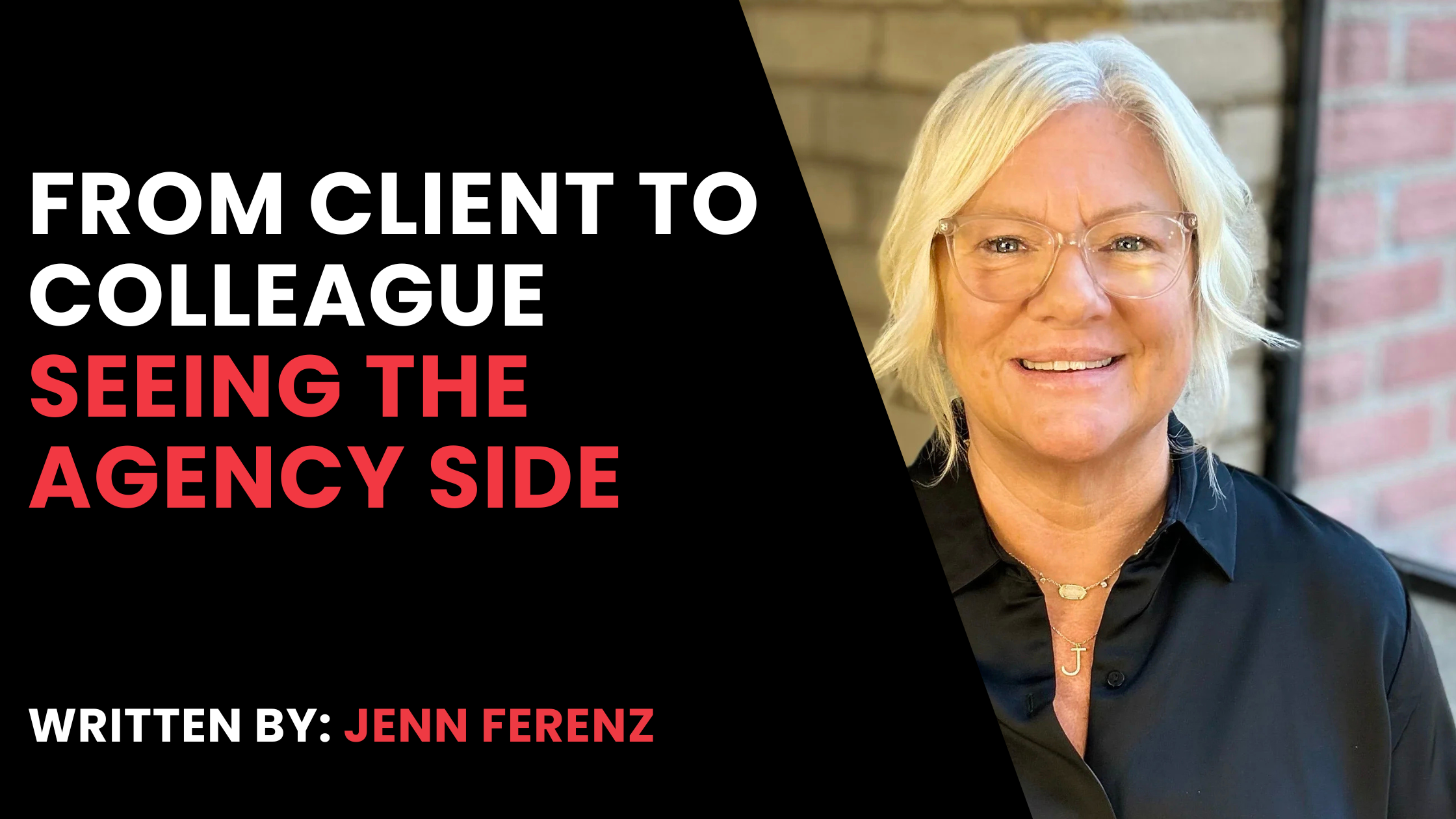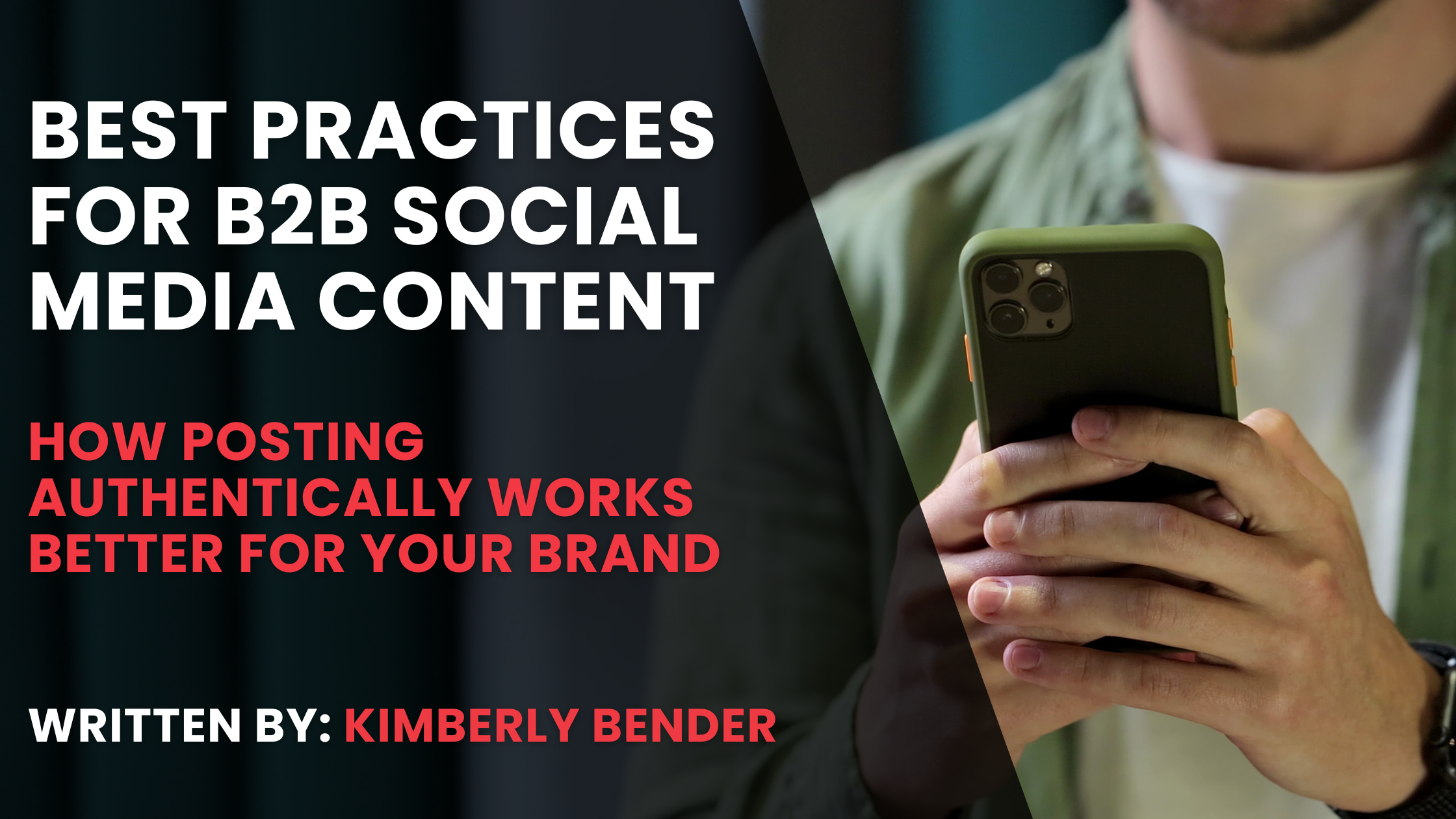Why Marketing Is Your Best Defense Against Economic Uncertainty in 2025

Let's face it – the economic landscape in 2025 is rocky. Political drama, tariff threats, wild exchange rates, and supply chain nightmares have business leaders reaching for the panic button. And what's the first budget on the chopping block? Marketing.
But hang on a second. That knee-jerk reaction might be your biggest mistake.
The 2025 Reality Check
Every news story, random social post, and even the stock market are sending mixed signals. The World Economic Forum notes global growth is holding at 3.2% – not terrible, but below the 3.8% we saw from 2000-2019. Meanwhile, tariffs, trade tensions, and tightening financial conditions are keeping everyone on edge (World Economic Forum).
If you’re like us and many of our clients, here are a few key factors that are shaking things up:
- Tariff Troubles and Trade Tensions
- Supply Chain Chaos
- Political Wild Cards
When Times Get Tough, Marketing Gets Put On the Chopping Block
It's instinctive, we get it. When you’re not sure about the future, you may tighten your belts as you wait and see. About 56% of businesses reducing their marketing budgets in 2025 blame economic uncertainty (WordStream).
But is reducing or cutting your marketing budgets smart business? You know what we’re thinking, don’t you?
Marketing ROI During Uncertainty
Marketing is your secret weapon now and always. Instead of retreating, savvy businesses double down on marketing activities during uncertainty. If you’re thinking Why should I keep marketing during a recession, here are a few reasons:
History's On Your Side
Remember Kellogg during the Great Depression? While competitors cut advertising, Kellogg doubled down, heavily promoted Rice Krispies, and boosted profits by 30% during history's worst economic disaster.
Millward Brown research shows: "If you increase your marketing investment when competitors reduce theirs, you substantially increase your brand's saliency... establishing an advantage that could last for years" (Westwood One).
Your Competitors Are Chickening Out
When everyone else is running scared, that's your opportunity. As marketing expert Tom DiScipio puts it, "when you see the rest of the marketplace being fearful about recessions and pullbacks... That's the time to invest" (Impact Plus).
Their silence is your chance to be heard. As others cut back, there can be less noise that your prospects are hearing, allowing you to cut through the past clutter and overstuffed inboxes of sales inquiries.
Trust Pays Dividends
During uncertainty, empathy builds loyalty. Harvard Business Review research found "the top 10 most empathetic companies increased their monetary value more than twice as much as the bottom ten and generated 50% more earnings" (My Great Learning).
Our team watched many of our clients navigate lots of empathy during COVID and beyond. These clients include uniform and linen rental companies who are essential as they provide linens, towels, and uniforms to the people creating medicine, food and much more. They adjusted delivery routes, reduced invoices and allowed changes to contracts to support their customers. Others pivoted to take on new services to support the essential workers.
Show up when times are tough, and customers remember. Those customers also tell others, which builds your brand, reputation and referrals.
Going Dark Gets Expensive
Cut marketing now, pay later – big time. Research shows it can take up to 5 years for brands to recover from "going dark" or stopping their advertising. Those temporary savings create a much more expensive recovery job later (Westwood One).
We’ve seen it happen, even with seasonality for some of our clients. They’ll turn off the faucet (paid ads) when times are tough or even when times are too good. That pause or halt might reduce costs for a few weeks or a month, but then the pipeline is dried up too. Turning the faucet back on starts only as a trickle, not like it was before. With algorithms and constant changes from advertising & social platforms, consistency is key.
You’re Planting Seeds Now, which You Will Harvest Later
Marketing does three two main things:
- Creates future demand (brand building)
- Converts existing demand (sales activation)
- Maximizes customer lifetime value (retention and loyalty)
Marketing does a lot more, however, these are the biggest factors for your bottom line. Economic uncertainty is exactly when you should shift toward building future demand and further position your brand to ensure you'll have interested customers when conditions improve (McKinsey).
Smart Marketing Moves for 2025

Invest in marketing during economic uncertainty. We’re not saying to keep investing without a strategy or throw more budget dollars at it. We’re saying be strategic about where that money goes. Measure what matters to find the high ROI marketing channels for your business.
1. Retention: Love the Customers You Already Have
Focus on retention during downturns. It's cheaper to keep existing customers than find new ones, and that math becomes even more important when budgets are tight (Krosson Digital).
What types of perks or loyalty programs could you develop for your customers? This might be a challenge for manufacturers or service providers to come up with, but perhaps you could consider free freight on one shipment, or even a pre-pay discount for a recurring service.
Of course, we believe in personalized communication for customers and prospects. You’re talking to people, not the entire business. Ensure that exceptional service is delivered at every touchpoint. Phone calls, emails, and check-ins by senior leadership will strengthen your customer relationships when they're also reviewing every expense.
2. Pick Your Battles (and Channels)
Marketing spending is projected to grow by 8.6% in 2025. Marketing is a pretty big bucket with everything from brand identity, websites, CRMs, social channels and more. Still, smart marketers are focusing on high-ROI channels. Technology, automations, segmentation and personalization and more are leading the way.
Your data will tell you where to invest. Not every channel deserves your dollars or time equally. We’re working with clients to focus on a few key channels vs trying to repurpose and put content everywhere. Investing in other areas where we do see the most impact for leads and supporting the sales team.
3. Follow the Data, Not Your Gut
Work with your marketing team to create SMART goals with clearly defined KPIs so you can understand the impact of your efforts and quickly make decisions to optimize campaign performance.
You could create a scorecard or feedback system to track performance, spot underperforming campaigns or tactics quickly, allowing you to adjust the plans before you waste money.
In 2025, analytics and predictive insights are essential for staying ahead of rapid consumer behavior shifts. In the B2B space, you’re still marketing and selling to people. While sales processes might be longer and have more decision makers, you can utilize customer data, insights, and input to develop ideal customer profiles so you are laser-focused on your targets.
4. Update Your Message for the Moment
No one wants to appear tone deaf to what’s happening in the marketplace. Your pre-uncertainty messaging may need a refresh. Audit your communications, asking:
- Does our value proposition address current customer concerns?
- Is our tone right for the times?
- Are we showing we understand customer challenges?
Economic uncertainty demands messaging that resonates with customers' new reality (Stripe). You can also look at the go-to-market strategies and shifts in your targets at this time. Suppliers to automotive OEMs may diversify to other industries like furniture, aerospace, and even household consumer products. They can also focus on replacement parts and aftermarket options to help their buyers make the most of their purchases.
5. How Can You Diversify Your Revenue Streams?
Don't let your business rely too heavily on one market segment or industry. Marketing can highlight different product lines, services, or customer groups that might be more resilient during economic challenges. Are there other “recession-proof” industries that you can get into?
Again, we watched many linen rental companies that were heavy into food and beverage establishments diversify and invest in healthcare linen products and services. This took an investment in equipment, processes, supplies and even certifications. However, the outcomes were an entirely new line of business and revenue streams to build the business long term.
6. Stand Out When Everyone Looks the Same
In tough times, your brand becomes your most valuable differentiator. Telling stories through customers (yeah, we mean testimonials and case studies) to demonstrate how you solved a pain or supported them will build confidence from prospects and keep customers loyal.
Double down on communicating your unique value when customers are comparing every option.
Use Video to Build Trust Faster
Video is one of the most powerful tools you can use to stand out in a crowded marketplace. Whether it’s customer testimonials, behind-the-scenes footage, product walkthroughs, or simple explainer videos, putting a face, voice, and story to your brand makes you more memorable and more human.
Video also works harder across platforms. A single well-edited video can live on your website, fuel your email campaigns, serve as a paid ad, and be chopped into bite-sized clips for social. It’s versatile, scalable, and consistently ranks as the most engaging content format across all major platforms.
When budgets tighten, buyers look for confidence and connection, not just price. Video helps you build both, giving you an advantage when others are blending in.
Turning Lemons into Lemonade
Economic uncertainty doesn't mean your growth has to stall. By maintaining or even increasing strategic marketing investments now, you can:
- Grab market share while competitors hide or leave the space
- Build stronger customer relationships through consistent presence
- Create competitive advantages that last for years after recovery
- Keep sales flowing when others see them dry up
Marketing isn't an expense. Marketing is an investment. It is also your strategic advantage when times get tough. While everyone else is ducking for cover, it's your chance to shine.
The question isn't whether you can afford to keep marketing in uncertain times. It's whether you can afford not to.
We realize that tough business decisions are also a part of uncertainty. Some businesses are focused purely on survival. Others may restructure teams, automate processes, and operations to save money. It’s important to think about what your customers and prospects are going through right now, too. How their priorities are shifting, their buying behaviors changing, and perhaps their decision-making timelines are longer or shorter.
If you’re struggling to differentiate your business from competitors or are looking to enhance your marketing process with technology and automations, reach out to us to have a conversation. We’re here to answer questions and support you as best we can.










